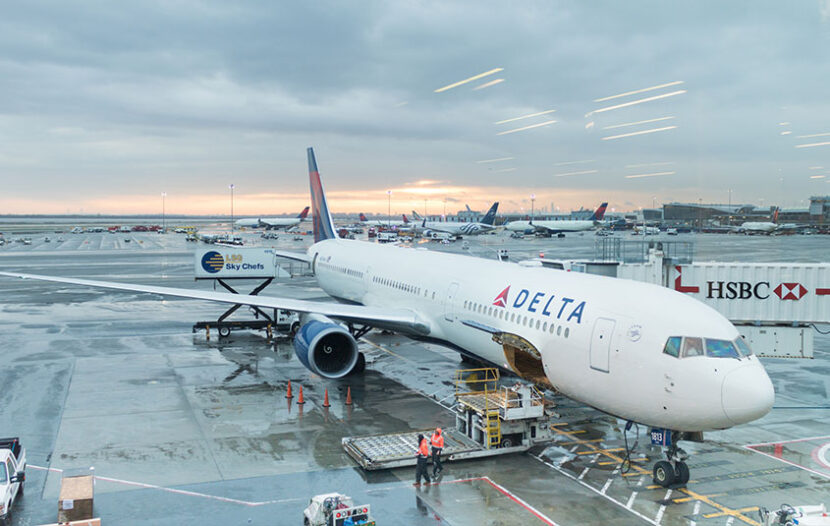MONTREAL — As Canada’s airlines suspend flights to Mexico and the Caribbean, U.S. carriers including Delta Air Lines and American Airlines say they have no plans to stop offering service to sun destinations, raising questions about both the business fallout for domestic airlines and the measure’s effectiveness for slowing the spread of COVID-19.
Canadian airlines have already been losing market share over the last several months to foreign carriers, said Mike McNaney, president and CEO of the National Airlines Council of Canada. Now, however, the only routes available to certain destinations will be aboard foreign airlines selling flights with stopovers in U.S. cities.
“We assume the government is also engaging foreign operators on this issue to ensure we are all taking the same concerted approach,” McNaney said. Transport Canada didn’t respond to a request for comment.
Canadians flying out of major cities will still be able to book trips to Mexico and the Caribbean as normal, provided they are willing to stop over at another airport. American and Delta, for example, are selling tickets for flights from Toronto to Cancun, with passengers connecting through U.S. cities such as Atlanta, Charlotte, N.C., and Philadelphia, an online search shows.
American Airlines said Monday that it had no schedule changes to share. Delta said it would suspend its flight from Minneapolis to Winnipeg as of Feb. 3, in keeping with government restrictions limiting which airports can receive international flights, but planned to continue its scheduled service to Canada.
Prime Minister Justin Trudeau said Friday that Canadian airlines had agreed to suspend flights to Mexico and the Caribbean until April 30, in an effort to combat the spread of COVID-19 in Canada. The prime minister announced the suspensions along with stricter measures aimed at reducing international travel, including a requirement that entrants to Canada quarantine in a hotel at their own expense.
On Monday, Bloc Quebecois transport critic Xavier Barsalou-Duval highlighted the fact that U.S. airlines were still offering flights from Canada to sun destinations, saying in a statement that the latest round of suspensions put Canadian companies at a disadvantage.
Asked why Canadian airlines suspended routes while American carriers continue to operate flights to the same destinations, WestJet spokeswoman Morgan Bell said Transport Canada would have to clarify.
“Recognizing that air travel represents less than two per cent of the transmission of COVID, the government asked us to stop flying to these destinations out of an abundance of caution, and we agreed,” Bell said.
The new restrictions were announced weeks after Canada implemented a requirement that all air passengers travelling to Canada produce evidence of a negative COVID-19 test taken within 72 hours of departure.
The testing mandate caused an immediate drop in flight bookings, airlines said, leading to additional layoffs. With the latest restrictions, experts say they expect further layoffs, along with potential bankruptcies, if government aid for the sector doesn’t materialize.
The suspensions of flights to sun destinations will cost Air Canada, the country’s largest carrier, around $200 million in lost revenue between now and April 30, industry analyst John Gradek said.
The flights that Canadian airlines continue to offer include transatlantic and transpacific routes along which carriers transport cargo, a business that has become increasingly important to airlines’ bottom lines as revenue from passenger sales dries up.
U.S. airlines such as Delta and American have received tens of billions of dollars in federal aid since the start of the pandemic. The government stimulus passed by the U.S. Congress in March 2020 included US$25 billion in payroll support for the industry, US$25 billion in loans for passenger airlines and more than US$10 billion in grants and loans for cargo airlines and aviation contractors.
Airlines in Canada, meanwhile, have been in negotiations with the government for months about the terms of a sector-specific aid package, with Ottawa saying that any federal funding for airlines would be contingent on their issuing full refunds to passengers who had their flights cancelled during the pandemic.
The Canada Enterprise Emergency Funding Corp. says it has agreed to give Sunwing Vacations Inc. and Sunwing Airlines Inc. access to $375 million to protect jobs in Canada’s airline sector.
The Crown agency said Sunwing has agreed to maintain an account with money received from customers for travel that was cancelled due to the COVID-19 pandemic until broader discussions with the airline industry conclude.
It said other applications for financing are under consideration but that rigorous due diligence and collaboration of existing lenders is required to protect the financial interests of taxpayers.
Emergency financing of at least $60 million is open to large Canadian employers with more than $300 million of annual revenues.
Canada’s airlines have received hundreds of millions of dollars in aid from the Canada Emergency Wage Subsidy, a federal spending program that helps cover a portion of companies’ payroll costs during the pandemic.

